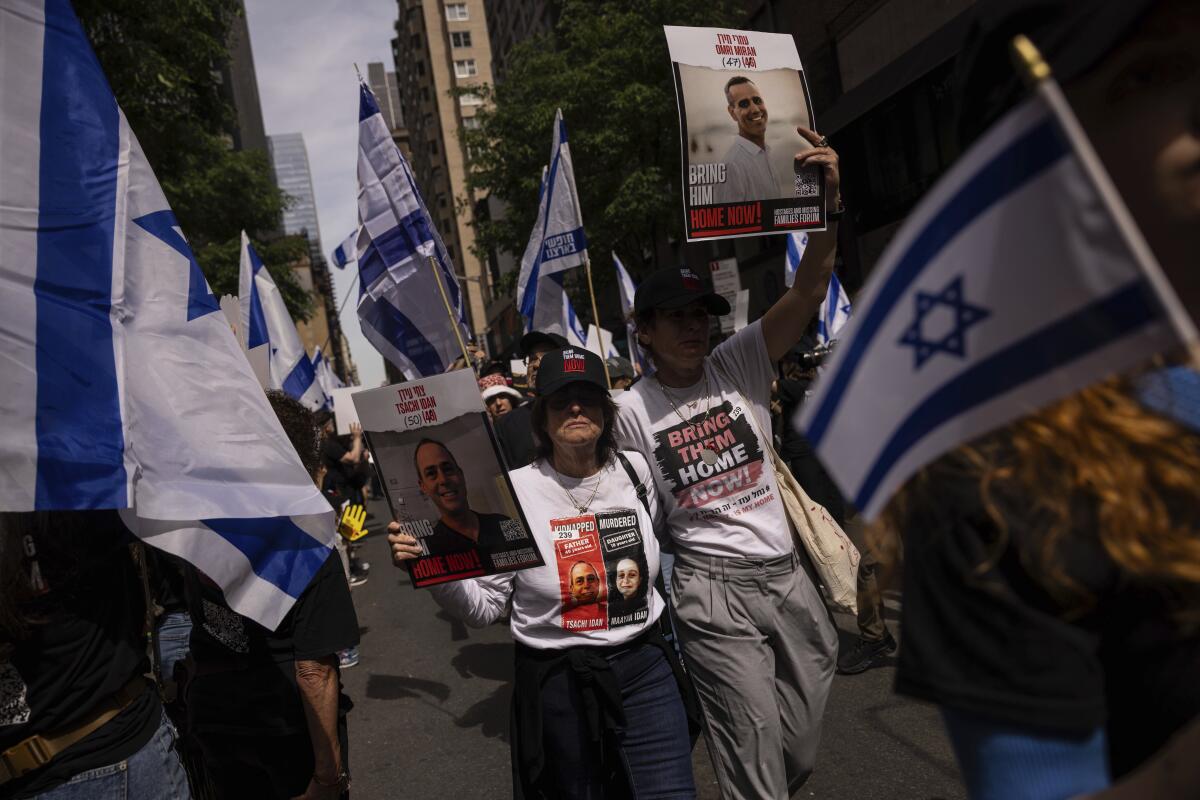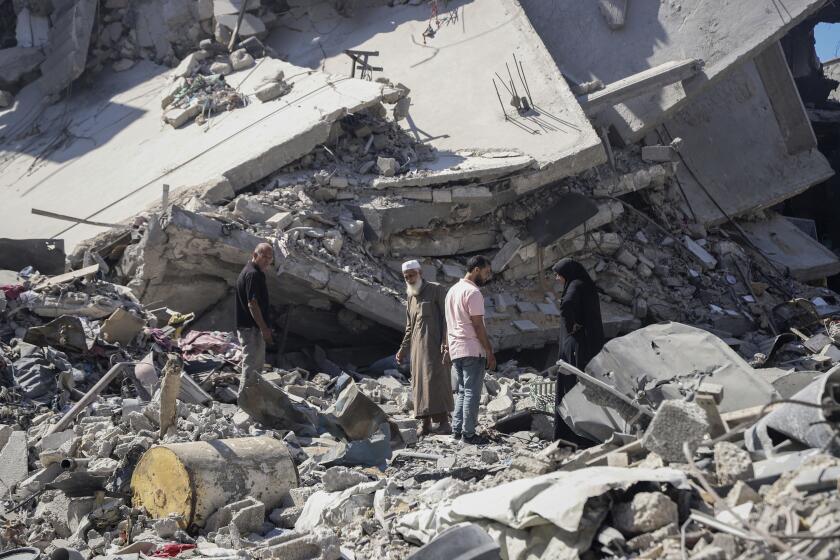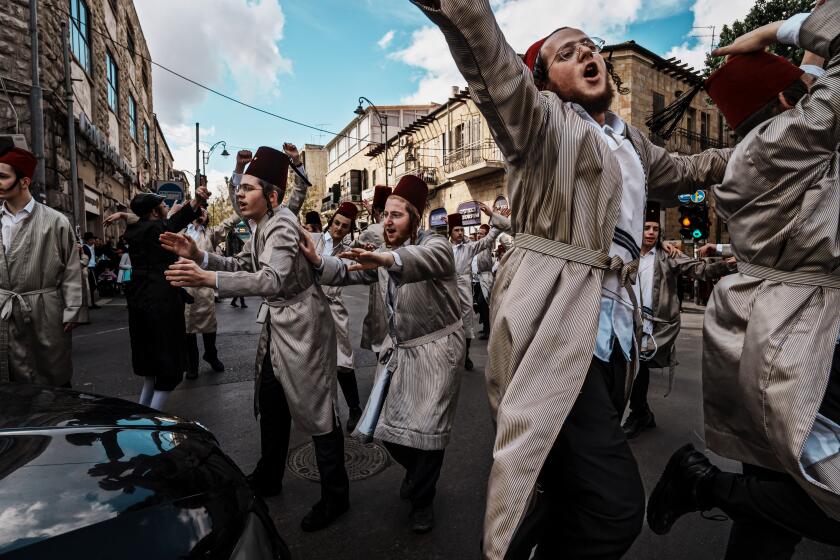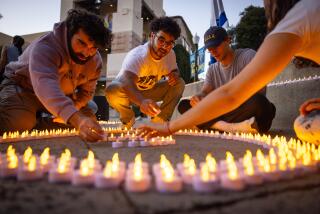Parade for Israel in New York focuses on solidarity this year as Gaza war casts a grim shadow

- Share via
NEW YORK — Marchers chanted for the release of hostages in Gaza on Sunday at a New York City parade for Israel that drew thousands of people under heightened security.
The parade kicked off almost eight months after the unprecedented Oct. 7 attack by Hamas, the deadliest in Israel’s history. The annual parade in the past was dubbed “Celebrate Israel,” but organizers said the exuberant atmosphere would be toned down this year given the war and hostages still being held in captivity in Gaza, as well as outbursts of antisemitism worldwide.
People chanted, “Bring them home now!” and waved Israeli flags as they marched up Fifth Avenue in Manhattan for what this year is being called “Israel Day on Fifth.” Crowds of spectators and hundreds of police officers lined the route, and steel barricades were installed along the sidewalk. One sign read: “From the river to the sea, Hamas will cease to be.”
“Especially this year, after Oct. 7, it’s especially important to have this show of unity,” said Rena Orman, a Bronx native who attended as part of Mothers Against College Antisemitism. “Everybody wants hostages back. Everyone wants this to end. No one is cheering for this. Everyone wants peace.”
Families of Israeli hostages held by Hamas call on all parties to immediately accept a proposal detailed by President Biden to end the war in Gaza.
Mark Treyger, CEO of the Jewish Community Relations Council, said earlier this week that the event would focus on solidarity, strength and resilience.
“This is not a mood of confetti and music,” Treyger said. “This is more of a mood of unwavering, ironclad solidarity with hostages to bring them home, and also our unwavering love and pride in our Jewish identity.”
The parade, which is in its 59th year, kicked off late Sunday morning with Senate Majority Leader Charles E. Schumer (D-N.Y.), New York Gov. Kathy Hochul and Mayor Eric Adams among the elected officials attending. Spectators came from around the New York City region.
“I think it’s important — especially with what’s going on in the Middle East, in Israel with the war going on — to show our support and to show that the hostages aren’t forgotten and the country itself is not forgotten,” said Michael Garber of neighboring New Jersey.
There was never a thought of canceling the parade this year, Treyger said, despite what he termed an astronomical rise in antisemitism.
“This is a moment that we have to meet,” he said.
But there was significant security.
The Jewish holiday of Purim is normally lighthearted and festive, but against a backdrop of war, some celebrations take on a stridently nationalistic edge.
New York Police Department officials employed measures typically used for high-profile events such as New Year’s Eve and July 4. That included drones, K-9 units, bike patrols, fencing and barriers and designated entry points for spectators all along the parade route. Backpacks, large bags and coolers were prohibited, and spectators had to pass through metal detectors.
City officials stressed Friday there were no specific or credible threats to either the parade or the city, and any protesters have the right to demonstrate so long as it is done peacefully.
“We’re not going to allow any unlawfulness and any disruption of any celebration of one’s heritage in this city,” Adams said at a security briefing.
The parade represents the first large-scale Jewish event in the city since the war started, although there have been roughly 2,800 protests in the city, with about 1,300 of them related to the conflict, the Democrat said.
Israel faces growing international criticism over its offensive in Gaza, at a huge cost in civilian lives. Israeli bombardments and ground offensives in the besieged territory have killed more than 36,000 Palestinians, according to Gaza’s Health Ministry, which does not distinguish between combatants and civilians.
Cruz writes for the Associated Press.
More to Read
Sign up for Essential California
The most important California stories and recommendations in your inbox every morning.
You may occasionally receive promotional content from the Los Angeles Times.












